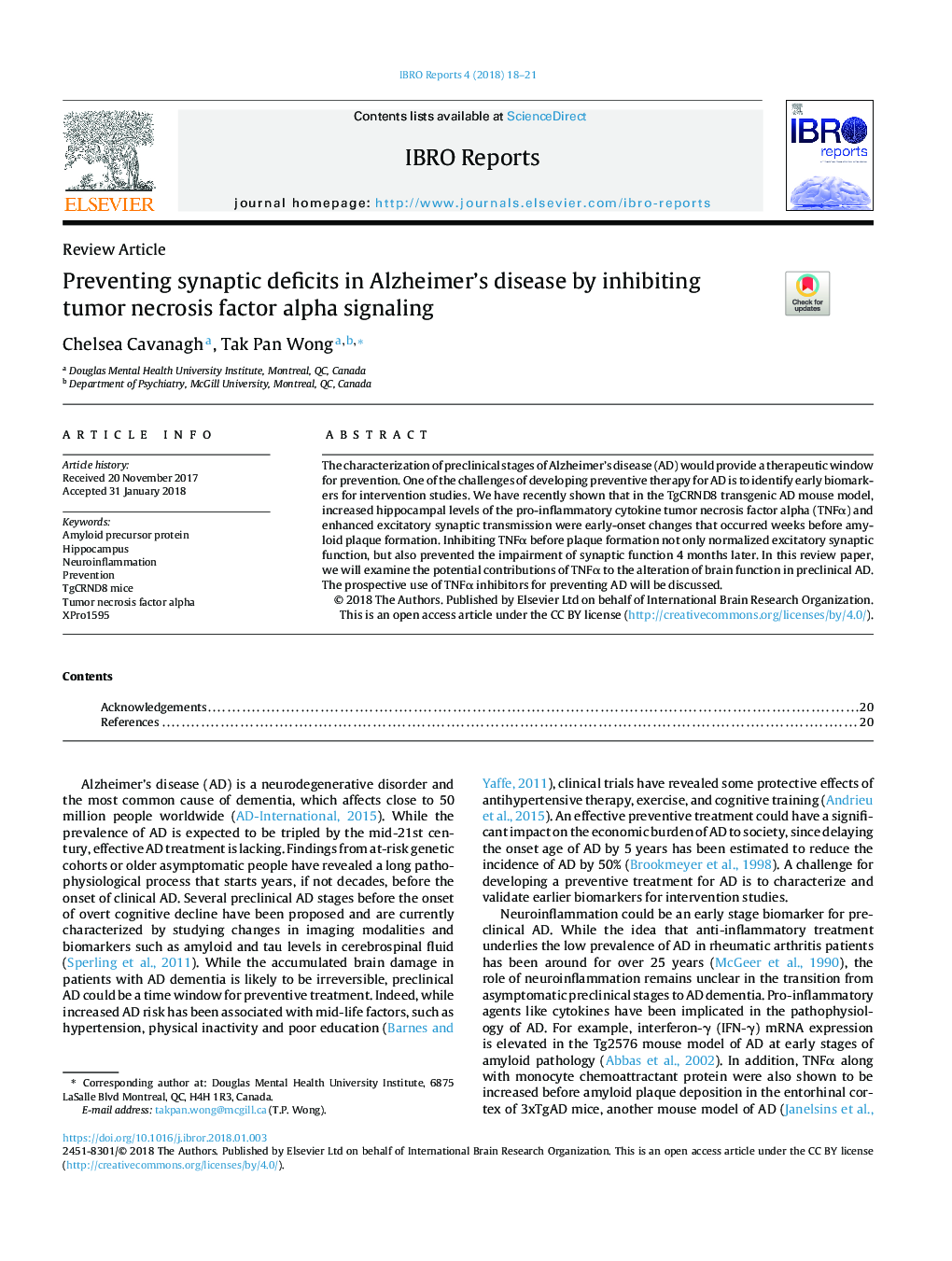| Article ID | Journal | Published Year | Pages | File Type |
|---|---|---|---|---|
| 8839101 | IBRO Reports | 2018 | 4 Pages |
Abstract
The characterization of preclinical stages of Alzheimer's disease (AD) would provide a therapeutic window for prevention. One of the challenges of developing preventive therapy for AD is to identify early biomarkers for intervention studies. We have recently shown that in the TgCRND8 transgenic AD mouse model, increased hippocampal levels of the pro-inflammatory cytokine tumor necrosis factor alpha (TNFα) and enhanced excitatory synaptic transmission were early-onset changes that occurred weeks before amyloid plaque formation. Inhibiting TNFα before plaque formation not only normalized excitatory synaptic function, but also prevented the impairment of synaptic function 4 months later. In this review paper, we will examine the potential contributions of TNFα to the alteration of brain function in preclinical AD. The prospective use of TNFα inhibitors for preventing AD will be discussed.
Keywords
Related Topics
Life Sciences
Neuroscience
Cellular and Molecular Neuroscience
Authors
Chelsea Cavanagh, Tak Pan Wong,
